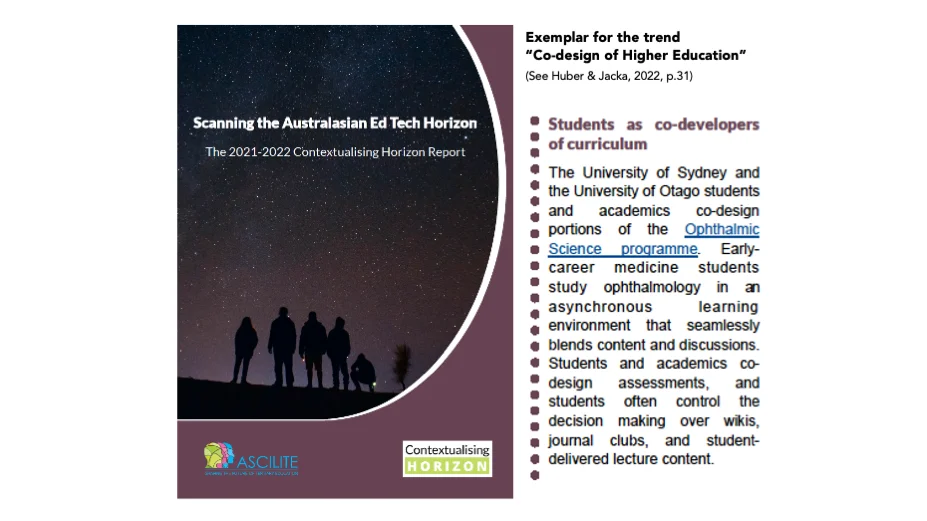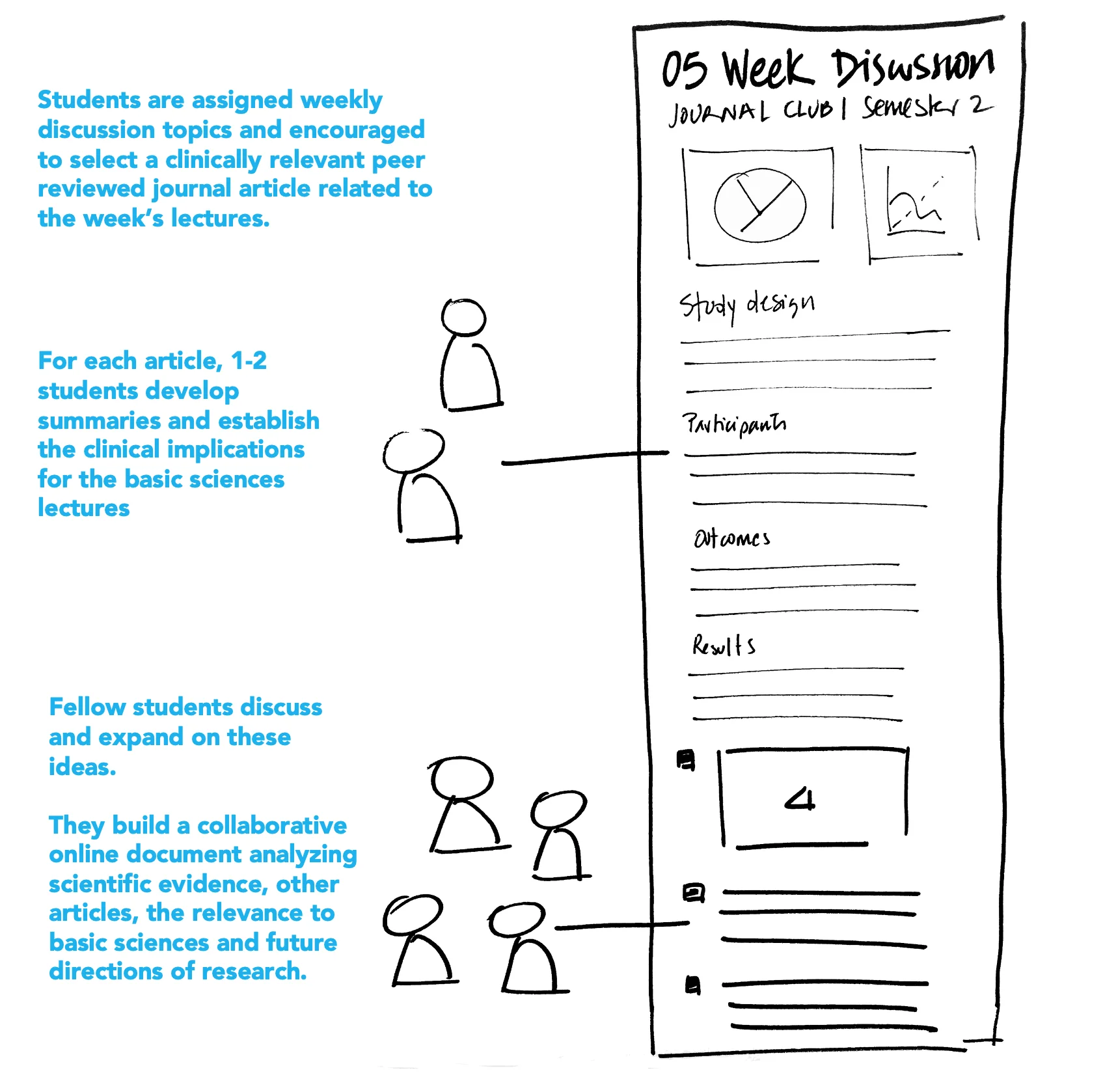Otago-Sydney Medical Students Co-developers of Curriculum Units
Over 17 years, the University of Sydney and the University of Otago have collaborated to deliver a hybrid degree in Basic Ophthalmic Sciences. A novel aspect is that students contribute to the course content through collaborative activities. They were chosen as an exemplar for the trend of co-design of Higher Education in the first Contextualising Horizon Report by ASCILITE - Australasian Society for Computers in Learning in Tertiary Education.

